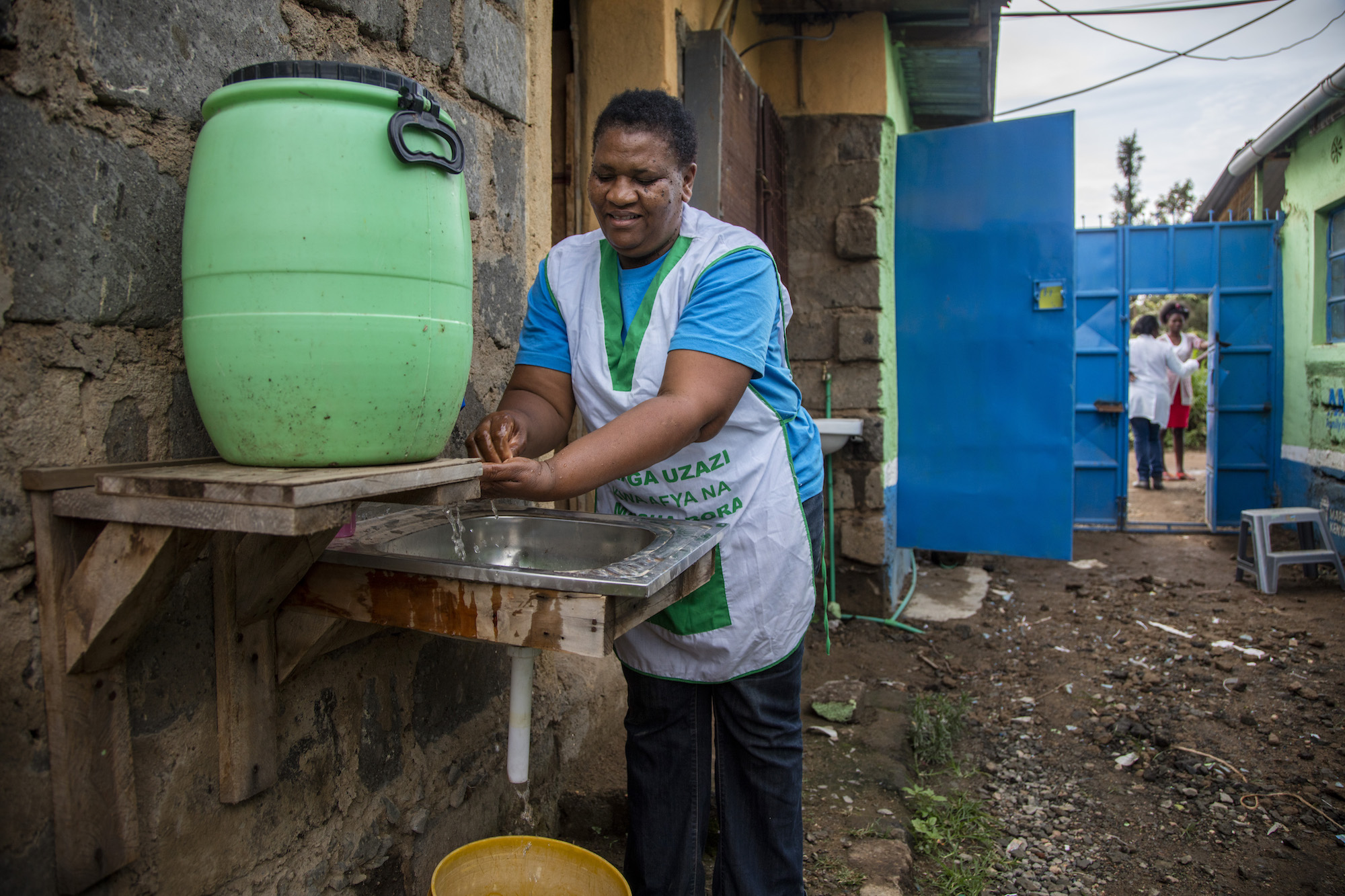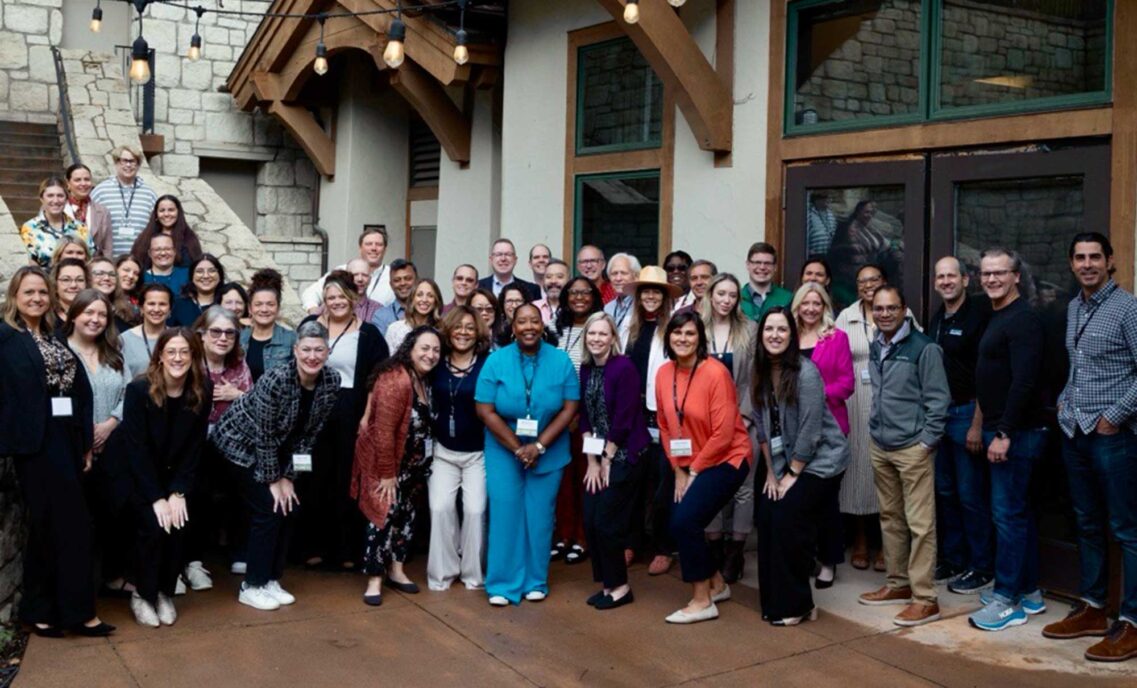Early in 2020, COVID-19 began devastating communities around the globe, exacerbating health threats, social isolation, food insecurity, systemic racism and economic insecurity. A year later, the pandemic is still raging, continuing to have a disproportional impact on vulnerable populations, particularly women and girls.
According to the United Nations, COVID-19 will likely push 47 million women and girls into poverty globally, threatening access to food, employment and critical health services. Several million apparel workers – the vast majority of them women – have already lost their jobs as COVID-19 hit the sector especially hard.
Recognizing the impacts on apparel workers, the Levi Strauss Foundation is committing $1.7 million across 2020 and 2021 to support organizations providing relief to apparel worker communities in the countries where we source our product. To date, these organizations have delivered support in the form of food, cash and housing assistance, personal protective equipment (PPE), and medical care to more than 650,000 apparel workers and family members. Additionally, to ensure the continued safety of workers, their families, and their communities, grantees are working to train at least 3,400 healthcare and frontline workers on hygiene and safety practices.
“Given that most apparel workers are women, and that many of them are the heads of their households, the foundation and its grantees believe that programs serving women will have the greatest impact on protecting their immediate safety and security” said Kim Almeida, LSF’s director of Worker Well-being.
Our grantees are uniquely positioned to respond to the severity of this crisis, advocate for worker rights and protections, and build long-term community resilience and strength. The Maria Elena Cuadra Women’s Movement and Stand Up Movement Lanka are two examples of the organizations the Foundation is supporting to provide immediate food relief for female apparel workers.
Nicaragua, the second poorest country in the Western Hemisphere, expects to see a rise in poverty rates due to COVID-19 – some estimate a 3.5% increase – which will have a devastating impact on female apparel workers. At the onset of the pandemic, Maria Elena Cuadra provided food packages to 600 apparel worker women heads of households and single mothers, delivering immediate assistance while also working on longer-term programs to mitigate the pandemic’s impact and alleviate the stress that a lack of income causes.
Similarly, in Sri Lanka, Stand Up Movement Lanka recognized that the pandemic would leave female apparel workers – especially migrant workers – even more vulnerable than they were before. Stand Up Movement Lanka is one of the only on-the-ground organizations in Sri Lanka that works alongside garment workers and understands their immediate needs. To ensure that garment workers are protected during this time, the organization provided nearly 900 female apparel workers with food, rent and medical assistance.
The foundation is also proud to support the following organizations in their efforts to improve the health and well-being of apparel workers in face of the pandemic:
- Apparel International Foundation: Providing financial relief to more than 800 female apparel workers and vulnerable families experiencing food and economic insecurity in Mexico.
- ActionAid Bangladesh: Producing and distributing hygiene kits, food packages, community hand washing stations and safety information to garment workers in Bangladesh.
- CARE Cambodia: Strengthening resources on gender-based violence, sexual harassment and women’s reproductive health services for vulnerable communities in Cambodia.
- Rizq Foundation: Providing food packages to 1,200 households experiencing economic insecurity in apparel worker communities in Pakistan.
- International Planned Parenthood Federation: Addressing the disruption and decrease in access to women’s sexual and reproductive health services in vulnerable apparel worker communities in Asia through its Emergency Response Fund.
- Marie Stopes International: Delivering critical women’s health services, including family planning and sexual and reproductive health care, to female apparel workers in Bangladesh.
- Naya Jeevan: Pairing and training under-resourced female doctors and health workers with personal protective equipment, telemedicine and internet connectivity to serve apparel worker communities in Pakistan.
- VisionSpring: Producing and distributing masks, handwashing stations and personal protective equipment to health workers serving communities where apparel workers live in Bangladesh.
- Swasti: Enabling factories and suppliers to protect workers from COVID-19 impacts by developing new workplace guidance, mental and physical health programs and digital communications.
This year, the foundation will continue to fund direct economic relief efforts targeting apparel workers. We know that the pandemic has worsened many of the inequalities faced by vulnerable communities around the globe. As we mitigate the immediate impact of the pandemic, we are also thinking longer-term to determine how we can nurture sustainable improvements in the lives of women across our supply chain.
“This is all part of our ongoing commitment to support workers in the supply chain, especially women who are the most vulnerable,” Kim said.







